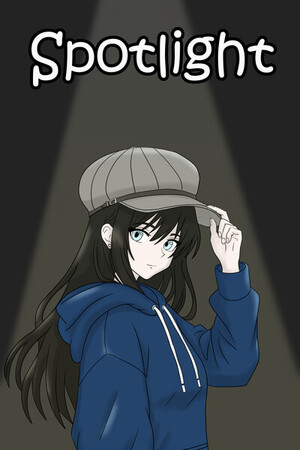Chapter 1:
Distance
Distance
__________________________________________________________________________
---------------------------------------------------------
BOARDING PASS
---------------------------------------------------------
AIRLINE: Air Japan FLIGHT: AJ 803
PASSENGER: Karen O’Hare
---------------------------------------------------------
DEPARTURE: Washington Dulles Intl Airport (IAD)
DATE: March 20, 2024
TIME: 3:30 AM EST
---------------------------------------------------------
ARRIVAL: Tokyo Narita International Airport (NRT)
DATE: March 21, 2024
TIME: 6:55 AM JST (next day)
---------------------------------------------------------
SEAT: 21A CLASS: Economy
GATE: D14 BOARDING TIME: 2:45 AM EST
---------------------------------------------------------
__________________________________________________________________________
Karen O’Hare had been warned not to go.
“There are better times,” her mom had told her. “There are too many tourists in the spring —and I’m busy with work, so I can’t take you. How will you get to your hotel? How will you buy tickets for the chikatetsu?”
“There are apps, mom. And I wouldn’t be a tourist. I’d be a visitor.”
“Even worse,” snapped Suzu O’Hare. “Is it that letter? Is that what this is about?”
“Let her go,” said Dan, a tall whiskered man who, like his daughter, spoke not a whit of Japanese. “She’s an adult. If she wants to go on a trip to Japan, then that’s that.”
“But,” Dan added again. “Your family is here. And we have sakura on the 49th too, you know? Might be better to save the cash.”
But Karen clutched her $700 ticket and boarded the plane. It was a twelve-hour flight that left her plenty of time to ponder the near-limitless points of interest in Tokyo, along with her fluffy eel kabayaki on the plane. It was a delicious dish of soft boneless fish that was supposed to serve as an in-flight dinner but, in fact, whet her appetite for the Tokyo experience that was to come.
日本へようこそ!
WELCOME TO JAPAN
“Nihon heyoukoso,” repeated Karen, as she approached the first store in the airport that she saw.
100 yen Onigiri! 200 yen sandwiches! Ramune and pocky and ‘bamboo shoots’ and sugar candies shaped like stars! And ぷっちょ and ハイチュウ and bags and bars in a vending machine. Though she didn’t know the words, the bright colors spoke to her and she put in some coins. She picked up a bag whose entire package was an angry face, opened up the top of its head, popped a chewy gummy, and was promptly attacked.
“Sour…!”
But, she wasn’t a tourist. She was a visitor; and visitors don't make fools of themselves in grocery stores. She selected a few some more snacks and approached the cashier, who spoke in a soft low voice.
“おつりは20円になります。ありがとうございます.”
“Excuse me,” the cashier blinked, after Karen just stood there, hands idle and flushed red. “Your change will be 20 yen.”
She took the coins and hurried off; she had no time for embarrassment. She had things to do, places to go. Because she wasn't a tourist.
After she checked into her hotel (as a visitor, not a tourist) and navigated the Metro (translation app in hand) she made her way towards her destination in the Minato Ward. She walked up the flight of stairs, traveled some city blocks, and then paused at another set of railroad that went nowhere.
“Old Shimbashi Station…”
Tokyo wasn’t always a city of rails, Karen remembered. They had to be built, tunnels dug, iron forged, hammered both in the depths of the earth and above. It was hard to imagine a Tokyo without trains, but it had bustled along without them for three-quarters of its existence.
Marker Zero, an incongruous segment amidst skyscrapers, was where the heart of this sprawling network first begun. It lay disused but not forgotten; a plaque written in both English and Japanese assured it.
This spot is where the first stake was driven at the survey starting point on 25 April 1870. In 1936, the government railways...
“Hallo!”
Someone roughly tapped her shoulder, and she whirled around. It was a man in a polo and khakis, with an easy expression and a shock of blonde hair.
“...Hello?”
“Oh! English is good! Where are good places to go to in Tokyo?”
“Tokyo Tower is nearby.”
“What does this Japanese say? Is this the same thing as the words here?”
“Probably.”
“Probably? Oh! Sorry, sorry, I didn’t know you were American.”
“...that’s okay.” She tried to laugh, but something felt all wrong. She did have some time until her appointment, so she went up Tokyo Tower, visited Mori Modern Art, and then found herself wandering through a park’s bamboo woods til the afternoon.
While Karen enjoyed all these she of course still did not think of herself as a tourist. At the end of her itinerary was a place called St. Luke’s International Hospital; and crumpled together with her $700 ticket was a letter about her grandfather.
__________________________________________________________________________
Karen resembled her mother in many ways. She was independent, intelligent (a straight-A student!), and stubborn to a fault. They both enjoyed romance movies and certain josei anime (Nodome Cantabile for one). But they did not watch them together. That would be embarrassing! What if the characters kissed?
And Karen's face, in particular, shared that same roundness around the cheeks and was topped with that circle nose. This face was what strangers noticed about Suzu and Karen, rather than their shared love of movies they’d each watch on their own.
If the man in the hospital bed recognized her, his eyes didn’t show it. Takeshi Yamazaki’s eyes held an intelligent gleam, but it was a glint of stone and not a warm spark of the hearth. His hair was the color of polluted snow; he grunted, and Karen went to his bedside and took his hand.
“Konichiwa…“
The visit Karen had scheduled was forty minutes long. She waited for Takeshi to respond —- “Welcome to Japan!” “Welcome home!” “How are you?” — but… the man scratched his ear and pulled out some loose earwax. He put the earwax into a tissue and stared.
“Watashi wa Karen desu. Konichiwa…”
Her grandfather’s eyebrows furrowed more and more tightly until the two swirling parts almost connected into one whole. He removed himself from her touch, then spoke in a loud, strained, voice.
“English.” He waved at a pile of books at the bedside. “You do not speak or understand Japanese. Because your family do not understand Japanese any more, I studied English.
“I was a doctor and it is easy for me to learn. I heard Suzu had a child. I learned English in five years and it is easier for a child to learn language,” the old man said.
When he breathed, he breathed in pieces, breath hitching, and yet his voice was still relentless.
“I do not like that Suzu did not teach you. And do you dislike Japanese? You understood that you were from Japan, and you did not learn it? I do not understand this and do not like it.”
Karen said: “I heard you were sick and wanted to comfort you, I wanted to get to know you, I always liked that I had an oji in Japan, but you’re right, I can’t call you that when I can’t even write your name. I know I’m not really Japanese, I thought I was your granddaughter, but it was silly of— I’m sorry, I hope you feel better soon— I’m sorry, please, I'll leave you to rest—”
and too late Karen realized that her speech was so fast and harried that even a native English speaker would have trouble understanding her, much less a hard-of-hearing haggard man in a hospital bed. Takeshi reached for one of his books and flipped through it, stone-faced. Then they were lost in a long silence.
“Watashi anata ai… sayonara,” Karen tried again.
“You are going somewhere?”
“Yes.”
Takeshi parted his lips and left them hung open, with a tiny gap. Karen wondered if she was about to hear his last gasp; she fumbled with the doorknob and hoped that she wouldn’t have to call a nurse. What would she even say?
And again, that voice pushed through. It was like bamboo; unassuming but completely unbreakable.
“Stop. Your…” Takeshi gestured and waved his hand in front of his head.
“Face?” Karen said.
“Face,” Takeshi agreed. “On your face, there is food. Make sure it is clean.”
Karen brushed away a crumb, and left the door to swing closed as she parted. She almost didn’t hear his last muttering:
“また来てくださいね.”
__________________________________________________________________________
Witnessing the cherry blossoms bloom was the final part of her itinerary. She came to Shiba Park in the evening, and a warm breeze clasped her; the petals swathed the path in pink, and transformed the dirt and dark stone into something like rose quartz. It was truly beautiful.
“I suppose,” Karen thought. “I’m just a tourist after all…”
But even in that moment— as the sakura fell—
She wondered how it could be that seeds from these trees could flourish over ten thousand miles away near the White House.
She wondered how it could be that she walked around all day with a piece of ぷっちょ stuck to her cheek, without noticing.
She wondered how it could be that a nondescript abandoned rail station in the Minato ward could provoke as colorful and vivid an imagination as the cherry blossoms she viewed right now.
Karen watched, and wondered.
Japan is more than a list of parks and museums, of places and foods. Its culture did not start in 1960 either — the year that ‘anime’ began. Rather, the civilization that inhabits those islands is thousands of years old, with a rich and complex history that cannot be grasped in a mere few days.
Karen’s family history could not be so easily understood either, even as a tiny slice of that whole. How could Karen have hoped to close the distance between father, daughter, and granddaughter in a single visit?
Karen decided she would wait a little longer. There were other places to visit, other wards to explore. Perhaps she would even take the train all the way to Kyoto.
And perhaps visit the hospice at St. Luke’s, just a few times more.
__________________________________________________________________________
TRANSLATE IN APP| JAPANESE TO ENGLISH
また来てくださいね
Please come again.




Please sign in to leave a comment.